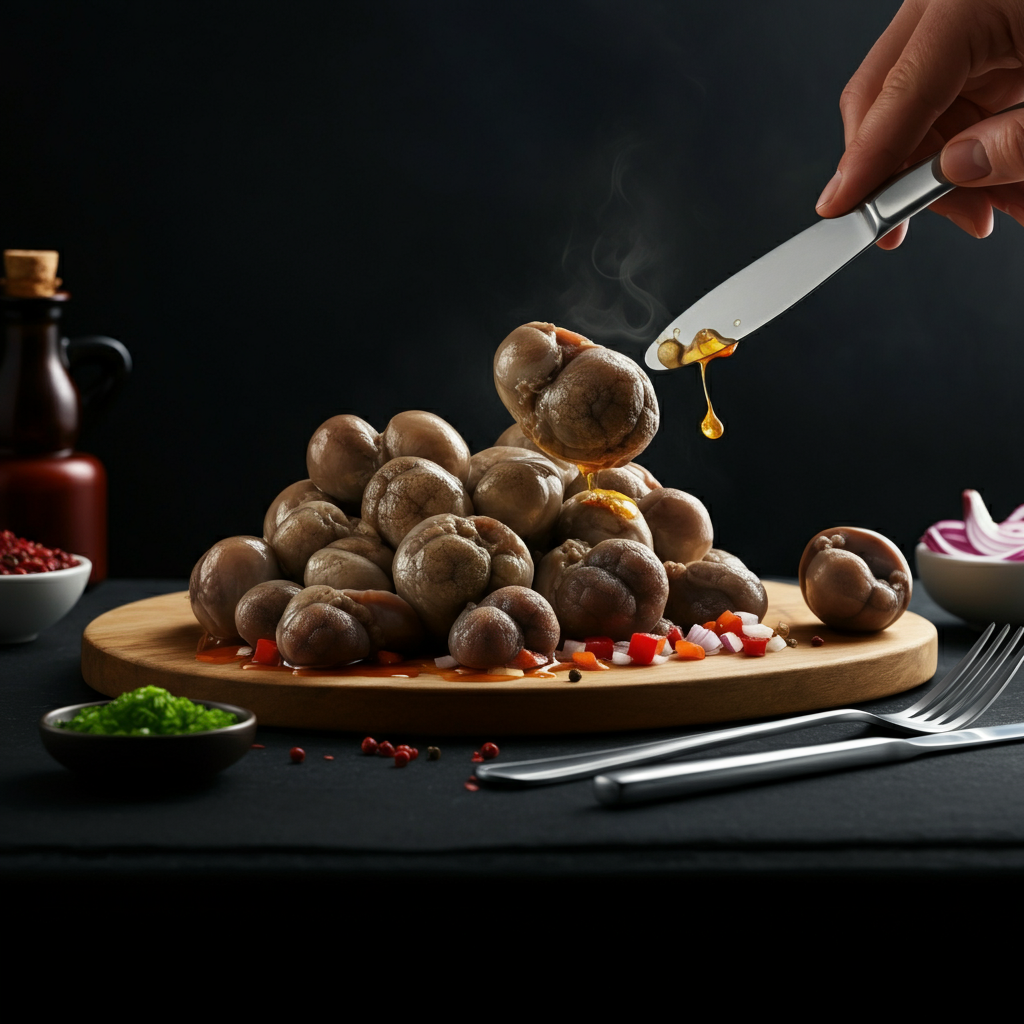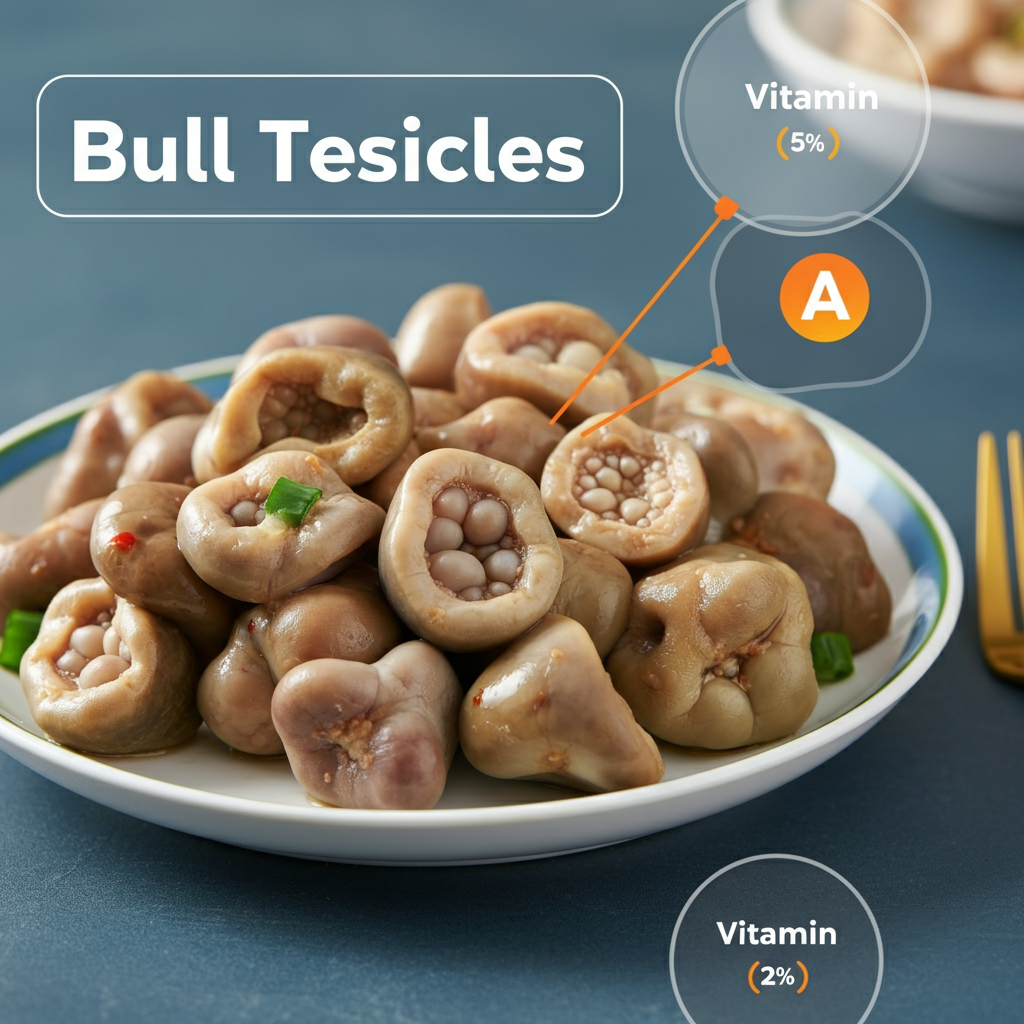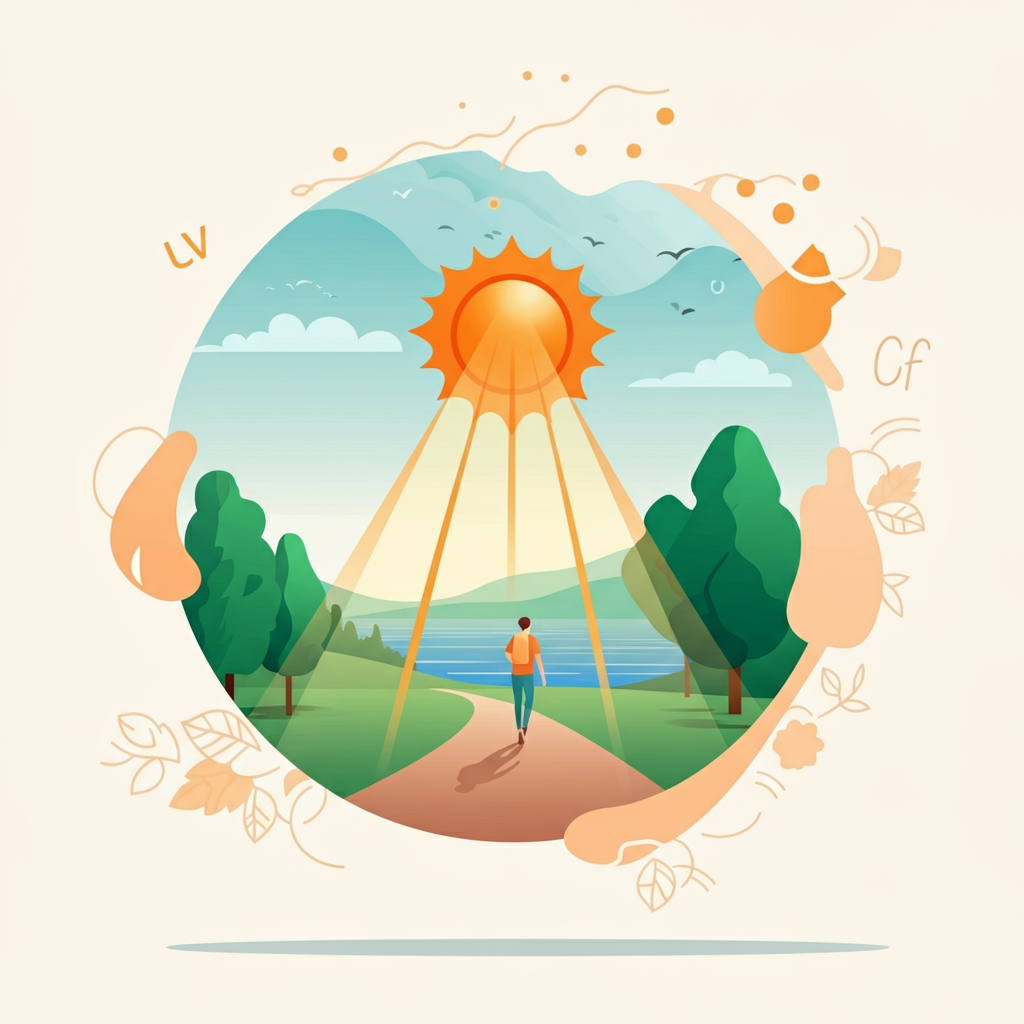Bull testicles might not be on your usual menu, but did you know they’re packed with nutrients, including Vitamin A?
If you’re curious about their health benefits or hesitant about trying them, this blog has all the answers. Discover why they’re gaining attention and what makes them unique—read on!
Key Takeaways:
- Nutritional Profile of Bull Testicles: Also known as Rocky Mountain oysters, bull testicles are a nutrient-rich organ meat packed with essential vitamins and minerals. They provide Vitamin A, B-complex vitamins, zinc, and magnesium, all of which play vital roles in maintaining overall health.
- Health Benefits of Bull Testicles: Bull testicles are believed to support hormone production, particularly testosterone, thanks to their high protein and mineral content. They are also an excellent source of energy, aiding muscle recovery and bolstering immune function.
- A Unique Culinary Experience: Bull testicles are a distinctive delicacy enjoyed in various cuisines around the world, celebrated for their flavor and texture. Though highly nutritious, their health benefits can be diminished by preparation methods like frying. Opting for healthier cooking techniques ensures you get the most out of their nutritional value.
What Are Bull Testicles (Rocky Mountain Oysters)?
Origins and Cultural Significance

Bull testicles, or Rocky Mountain Oysters, have a long-standing history rooted in the American West. Back in the days of cattle ranching, cowboys made use of every part of an animal, following a “waste-not” philosophy. Bull testicles became a protein-packed treat during cattle branding sessions. A famous saying highlights this tradition vividly: “Cowboys seared fresh bull testicles with branding coals for an on-the-job treat.” (Source)
Cultures across the world have embraced bull testicles as a delicacy. For instance:
- Spain and Portugal serve them in rich, flavorful stews.
- China incorporates them into dishes believed to bolster energy and vitality.
- Argentina grills them simply during their famous asados (barbecues).
This history connects deeply to the rise in “nose-to-tail” eating, a modern food trend where consuming every edible part of an animal is celebrated for sustainability and respect.
Common Names and Culinary Uses
Bull testicles might go by many names, but their culinary reputation is undeniable. Some of the most recognized terms include:
- Rocky Mountain Oysters – Popular in the American West.
- Cowboy Caviar – A humorous twist used among ranchers.
- Prairie Oysters – Common in Canadian slang.
- Criadillas – A delicious name in Spanish-speaking countries.
Preparation Methods Around the World:
- Deep-Fried: Many Americans enjoy them battered and fried, paired with dipping sauces.
- Grilled: Often served with simple seasoning in South America.
- Stewed or Braised: Common in Mediterranean and Asian cuisines, cooked with aromatics.
- Sashimi Cuts: Countries like Japan slice and serve them raw, topped with soy sauce.
Nutritional Profile of Bull Testicles
| Nutrient | Bull Testicles (100g) | Beef Liver (100g) | Chicken Breast (100g) | Salmon (100g) |
|---|---|---|---|---|
| Calories | 135 | 191 | 165 | 206 |
| Protein | 26g | 29g | 31g | 22g |
| Fat | 3g | 4g | 3.6g | 13g |
| Vitamin A | Moderate | Very High (1048% DV) | Low | Low |
| Vitamin B12 | High | Very High (2715% DV) | Moderate | High |
| Vitamin D | Moderate | Low | Low | High |
| Zinc | High | Moderate | Low | Low |
| Selenium | High | High | Moderate | High |
| Iron | Moderate | High (36% DV) | Low | Moderate |
| Cholesterol | 375mg | 381mg | 85mg | 63mg |
| Carbohydrates | 1g | 0g | 0g | 0g |
Health Benefits of Eating Bull Testicles

Vitamin A and Its Role in the Body
Vitamin A is essential for maintaining healthy vision, bolstering the immune system, and supporting skin health. It helps the body fight infections and promotes cell growth. Bull testicles are a natural source of Vitamin A, providing a nutrient boost that contributes to meeting daily intake needs.
- Vision Support: Vitamin A is critical for eye health and prevents night blindness.
- Immunity Boost: It enhances the body’s defences against illnesses by supporting white blood cell production.
- Skin Health: Vitamin A promotes healthy, radiant skin by aiding in cell regeneration.
Including bull testicles in your diet offers a unique way to incorporate this nutrient alongside other foods like liver and carrots.
Boosting Reproductive Health
Bull testicles are rich in zinc and selenium, two essential minerals for reproductive health.
These nutrients are linked to male fertility and better testosterone levels.
- Zinc helps produce testosterone, ensuring hormonal balance in men.
- Selenium boosts sperm motility and overall sperm quality.
Adding foods high in these minerals to your diet can have profound effects on reproductive wellness. Bull testicles are a great example, alongside seafood and pumpkin seeds.
Supporting Overall Wellness
Bull testicles provide high-quality protein, along with important antioxidants like Vitamin E and selenium. These components promote muscle health, repair, and protect the body from oxidative damage.
- Muscle Repair: The protein content aids in muscle recovery after exercise.
- Antioxidant Power: Selenium and Vitamin E protect the body from free radicals, reducing cell damage (source).
For athletes or individuals looking to build strength, bull testicles serve as a nutrient-rich choice similar to eggs and chicken.
Exploring Other Essential Vitamins
How Fast Does Vitamin B12 Work?
Vitamin B12 absorption depends on the source and delivery method. Here’s a breakdown:
Dietary Sources
- Foods like bull testicles provide Vitamin B12 that absorbs during digestion.
- Absorption starts in the stomach, but effects might take days to feel.
- Pair B12-rich foods with folate for efficient absorption.
B12 Injection Benefits
- B12 injections bypass digestion, entering the bloodstream immediately.
- Effects are felt faster, especially for people with deficiencies.
- Ideal for those with absorption issues due to medical conditions.
Actionable Tip: Combine dietary B12 with green leafy vegetables to maximize nutrient intake.
How Long Does a Vitamin B12 Injection Last?
The effects of a B12 injection are long-lasting but vary based on individual needs.
Injection Duration
- A single injection can last 1 to 2 weeks depending on deficiency levels.
- Regular injections maintain optimal levels for severe B12 deficiencies.
Dietary Comparison
- Foods rich in B12 provide a sustained release over time.
- Include egg yolks, organ meats, and seafood for steady energy and nerve health.
Actionable Tip: Consult a doctor to determine the frequency of B12 injections.
How to Get Vitamin C on a Carnivore Diet
Contrary to misconceptions, carnivore diets can provide Vitamin C. Here’s how:
Organ Meats as Sources
- Bull testicles and beef liver contain low levels of Vitamin C.
- Regular consumption prevents deficiencies when combined with other nutrient-dense meats.
Enhanced Nutrition
- Add small amounts of citrus fruits or fermented foods like sauerkraut.
- These boost collagen production and protect against oxidative damage.
Actionable Tip: Balance meals with occasional non-meat sources for optimal Vitamin C levels.
Can I Use Vitamin C with Benzoyl Peroxide?
Using Vitamin C with benzoyl peroxide requires caution due to their interaction:
Potential Issues
- Benzoyl peroxide oxidizes Vitamin C, reducing its efficacy.
- Applying both together can irritate sensitive skin.
How to Use Both
- Use Vitamin C serums in the morning for protection against free radicals.
- Apply benzoyl peroxide at night to avoid direct product conflict.
Actionable Tip: Wait a few hours between applications to minimize irritation.
Can Vitamin C Serum Make You Break Out?
Yes, Vitamin C serums can cause breakouts for some people. Here’s why:
Irritation and Purging
- High concentrations (over 20%) may irritate sensitive or acne-prone skin.
- Purging happens as clogged pores clear, leading to temporary breakouts.
Choosing the Right Product
- Look for serums with gentle formulations (10%-15% concentration).
- Select versions with additional calming agents like hyaluronic acid.
Actionable Tip: Introduce Vitamin C gradually to your routine and use it once every other day.
Vitamin D and Its Unique Benefits

Can You Get Vitamin D on a Cloudy Day?
Yes, you can still get Vitamin D even when it’s cloudy. While clouds block some sunlight, they don’t completely stop the UV rays. Fun fact: up to 80% of UV rays can still penetrate through clouds. This means your skin can continue producing Vitamin D even if the sun isn’t shining directly.
For example, if you go for a quick outdoor walk on an overcast day, your body will still synthesize Vitamin D, though in smaller amounts compared to a sunny day. Standing near windows, however, won’t help because glass blocks UVB rays—the ones responsible for Vitamin D production. This makes outdoor exposure, even briefly, essential.
Do You Get Vitamin D on Cloudy Days?
While cloudy days reduce the intensity of sunlight, they don’t entirely eliminate Vitamin D production. For optimal production, spending 10-30 minutes outdoors during midday sunlight is recommended. On cloudy days, you might need to extend this time a little.
Dietary sources are also crucial, especially during seasons or conditions when sunlight is limited. For example:
- Fatty fish like salmon and mackerel are excellent sources of Vitamin D (source).
- Liver and organ meats also provide meaningful amounts.
- Fortified foods such as cereals and plant-based milks are easy to incorporate into your diet.
By balancing outdoor exposure and incorporating these foods, you can ensure steady Vitamin D levels all year round, even when cloudy skies persist.
Is Vitamin D FSA Eligible?
Yes, Vitamin D supplements are often eligible for Flexible Spending Account (FSA) reimbursement, but there’s a catch—it usually requires a doctor’s prescription or recommendation. This matters because FSAs are designed to cover health-related expenses that benefit your well-being.
Here are 3 quick tips to maximize FSA benefits:
- Keep receipts and documentation if your doctor prescribes Vitamin D supplements for health conditions like osteoporosis or deficiency.
- Consider buying higher-quality supplements from reliable sources, e.g., brands that undergo third-party testing.
- Pay attention to annual FSA deadlines to avoid losing unused funds.
Product Comparison Table
Bull Testicles vs Other Organ Meats
| Nutrient | Bull Testicles (Rocky Mountain Oysters) | Beef Liver | Kidneys | Heart |
| Calories (per 100g) | 135 | 191 | 103 | 112 |
| Protein | 26g | 29g | 17g | 20g |
| Fat | 3g | 4g | 3g | 4g |
| Vitamin A | Moderate | Very High (1048% DV) | Low | Low |
| Vitamin B12 | High | Very High (2715% DV) | High | High |
| Vitamin D | Moderate | Low | Low | Low |
| Zinc | High | Moderate | High | Moderate |
| Selenium | High | High | High | Moderate |
| Iron | Moderate | High (36% DV) | High | Moderate |
| Cholesterol | 375mg | 381mg | 239mg | 275mg |
| Unique Benefits | Supports reproductive health, fertility | Detox organ, nutrient powerhouse | Filters toxins, rich in selenium | High CoQ10 for heart health |
Potential Drawbacks and Considerations
High Cholesterol Content
Many organ meats, including bull testicles and liver, have high cholesterol levels. While cholesterol is an essential component your body needs for cell function, consuming too much dietary cholesterol can increase the risk of heart disease for some people.
According to the American Heart Association, balancing cholesterol intake with your overall diet is critical. For example, if you enjoy liver, pair it with fiber-rich vegetables to support heart health and maintain moderation in portion sizes.
Tips to Manage Cholesterol When Eating Organ Meats:
- Limit consumption to smaller, occasional servings to avoid overloading your diet.
- Pair organ meats with nutrient-dense foods like leafy greens or whole grains.
- Choose healthier cooking methods, such as grilling or steaming, instead of frying.
Acquired Taste and Texture
Organ meats often have a strong, distinctive flavor and a unique, chewy texture that some people find off-putting. For instance, liver is dense and metallic-tasting because of its rich iron content, while bull testicles have a rubbery texture many are unfamiliar with. Preparing these foods in flavorful ways can make the experience more palatable. For example, marinate liver in herbs and sauté it with onions to balance its intensity.
Suggestions to Improve Taste:
- Use spices and herbs, such as garlic, cumin, or rosemary, to enhance flavor.
- Experiment with recipes, like pâtés, stir-fries, or stews, to mask strong tastes.
- Combine with familiar ingredients, like potatoes or rice, to ease into new textures.
Ethical and Cultural Concerns
Sourcing and consuming organ meats bring ethical and cultural challenges. For spiritual or cultural reasons, some groups avoid organ meats entirely. Ethical issues arise when discussing animal welfare and whether the sourcing methods respect sustainable practices. Organizations like Farm Forward advocate for more humane animal treatment and conscious eating habits.
Ethical and Cultural Considerations to Keep in Mind:
- Support local farmers who prioritize sustainable and humane animal practices.
- Respect individual dietary beliefs or cultural limitations regarding organ meat consumption.
- Educate yourself on how your dietary choices impact the environment and animal welfare.
How to Incorporate Bull Testicles Into Your Diet
Popular Recipes
Including bull testicles in your diet might sound intimidating, but with proper preparation, they can be a unique and nutritious addition. Here are some popular recipes to try:
Traditional Fried Rocky Mountain Oysters
- Slice the bull testicles into thin rounds.
- Coat them in a mixture of flour, cornmeal, and spices like paprika or garlic powder.
- Deep-fry until golden brown for a crispy texture.
- Serve with a squeeze of lemon or a side of ranch dressing for added flavor.
Keto-Friendly Bull Testicles
- Remove the membrane and slice the testicles thinly.
- Sear them in butter or ghee with a pinch of sea salt and black pepper.
- Pair them with sautéed vegetables like spinach or zucchini for a low-carb, high-protein meal.
Carnivore Diet Variation
- Poach bull testicles in bone broth for 15–20 minutes.
- Season with salt and serve alongside beef steak or organ meats for a nutrient-dense, all-meat dish.
Tips for First-Time Consumers
If you’re new to eating bull testicles, here are some important tips to ensure a positive experience:
Start with Fresh and Quality Ingredients.
- Always purchase fresh bull testicles to ensure the best taste and texture. Look for a clean, firm consistency when buying them.
Proper Cleaning is Essential.
- Rinse thoroughly under cold water and remove the outer membrane with a sharp knife before cooking.
Experiment with Mild Spices First.
- Use simple seasonings like salt, pepper, and a touch of garlic until you get used to the flavor.
Balance the Meal.
- Pair bull testicles with familiar side dishes, such as roasted potatoes or a simple salad, to ease into the experience.
Cook Thoroughly.
- Ensure they are cooked all the way through (internal temperature of 145°F/63°C) to avoid any risk of foodborne illnesses.
Where to Buy Bull Testicles
Not sure where to find bull testicles? Here are reliable sources:
Specialty Butchers
- Contact local butchers who specialize in offal or exotic meats. They often carry organ meats on request.
Online Stores
- Reputable online platforms, such as FarmFoods Market, provide high-quality organ meats delivered straight to your door.
Local Farmers’ Markets
- Visit farmers’ markets in your area. Many small-scale farmers sell organ meats as part of their traditional offerings.
FAQs
Do bull testicles contain Vitamin A?
Yes, bull testicles are known to contain a variety of nutrients, including Vitamin A, which is essential for healthy vision, immune function, and skin health.
What are the key nutritional benefits of consuming bull testicles?
Bull testicles are rich in protein, zinc, iron, and essential vitamins like Vitamin B12 and Vitamin A. These nutrients contribute to energy production, improved hormonal balance, and support for the immune system.
Are bull testicles good for boosting testosterone levels?
Traditional practices suggest that consuming bull testicles, which contain natural hormones and proteins, may support testosterone production. However, scientific evidence on this claim is limited and requires more research.
How do you cook bull testicles for maximum nutritional value?
To preserve their nutrients, bull testicles can be grilled, fried, or boiled, but overcooking should be avoided. Marinating and seasoning them carefully enhances both their flavor and nutritional benefits.
Is it safe to eat raw bull testicles?
While raw consumption is sometimes promoted for maximum nutrient retention, it carries risks of bacterial contamination. Cooking thoroughly is the safest way to reduce the risk of foodborne illnesses.


Leave a Comment